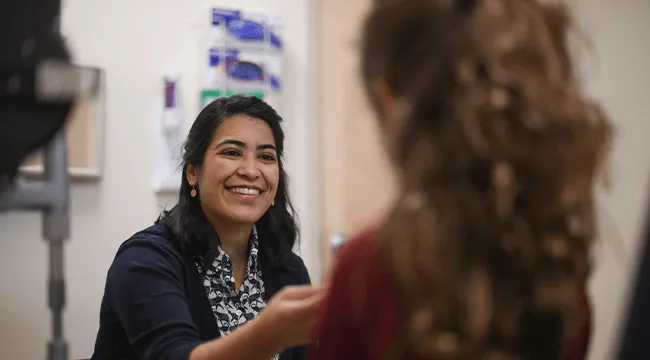Pediatric ophthalmologist Sujata Singh, M.D., assistant professor of medicine at the Larner College of Medicine, was featured in an NBC5 story for Healthy Vision Month in July.
Doctors say that eye health often gets overlooked, even though early intervention can prevent serious vision issues later on. According to the Centers for Disease Control and Prevention, an estimated 93 million adults in the U.S. are at high risk for vision loss, but only about 60 percent see an eye doctor each year.
Two big concerns with eye health are screen time and sun protection.
Experts say many people are not even aware of what screen time does to their eyes. Simple strategies, like the “20-20-20 rule” can help: For every 20 minutes, look at something 20 feet away, for 20 seconds to let your eyes re-focus and relax.
“There’s nothing magical about 20s. But the idea is that you’re doing it, like, three times an hour,” said Singh.
When it comes to sun protection, officials say to wear sunglasses and to avoid direct eye contact with the sun.
“It really can affect your macula, which is the central part of your retina that gives you your central vision. So [a] pretty vital part of your, of your eye anatomy,” said Singh.
Singh also says to pay attention to signs like squinting, eye rubbing, or trouble focusing, and if you have a family history of vision problems or conditions like diabetes, you should be even more proactive.
A lot of childhood vision issues can be treated if caught early. Doctors recommend scheduling routine eye exams every year.
